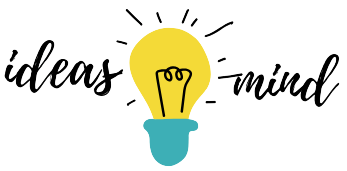We are living through an artificial intelligence revolution. AI is already changing the way we write, communicate with others, and complete mundane tasks. However, there are hints that AI might also be making its way into the world of healthcare – and the future is looking very exciting.
AI can ultimately help to make our lives easier. Hypothetically, this intelligence may also help to relieve healthcare services of unnecessary strain, provide better care for patients, and even drive down waiting times.
How can AI be used in healthcare, and how are these advancements already helping to improve nursing and patient support all over the world? Here is a closer look at ways AI can transform the way we provide care.
Analytics and patient data
When it comes to new technology in nursing, much of it is useful for analyzing patient data. Students in nursing programs at Walsh University, for example, will learn early on how important technology is for learning more about a patient’s health.
AI and machine learning can offer incredible insights into potential treatments and diagnoses by assessing previous treatment data and patient histories and comparing it with preceding cases. While there will always be a need for doctors, nurses, and specialists to analyze patient conditions and recommend treatments, AI will help professionals make more efficient and confident decisions.
Many people are already diagnosing and treating themselves outside of clinics and hospitals with help from technology. For example, during the COVID-19 pandemic, telehealth apps and services spiked in popularity. These services allowed people to self-diagnose and monitor their own data from home.
Ultimately, AI-driven analytics are more precise and more efficient to draw upon compared to those found through manual discovery. This benefits everyone as medical staff have more time to actively treat patients, and patients receive critical care more efficiently on the back of confident, data-driven decision-making.
Drug research and discovery
It is unlikely we will ever stop researching new drugs and treatments. However, drug research is an intensive process, and given that viruses are evolving to resist some antibiotics, healthcare as an industry is working against the clock to find more cures and treatments.
Only one in every 1,000 drugs researched and clinically trialed ever makes it to the human testing phase. One in every 5,000 beyond this will reach pharmacy shelves.
Therefore, AI technology is already helping transform how we research, study, and trial new drugs. While traditional drug research is rooted in trial and error, AI research through systems like those developed by IBM intelligently simulates how medicines may react in patient trials. Therefore, there’s no risk to patient health and significantly less time spent researching and testing.
Effectively, AI could reduce years of research into days or weeks. While there may still be some errors, machines are constantly learning from mistakes based on precedents and use cases. It’s an exciting development that could see vaccines roll out faster in the emergence of a new pandemic, for example.
Patient aftercare support
Many people have already taken it upon themselves to diagnose, treat and monitor conditions from home. Therefore, it’s not difficult to foresee AI providing extensive aftercare support to patients leaving the hospital, who are taking new courses of medication, or who struggle to follow doctor recommendations.
In some cases, for example, AI may be useful in helping to monitor heart rates and blood pressure and to remind people to move and exercise. All of this is possible through wearable technology such as Fitbits and Apple Watches.
Crucially, these services make recommendations and can be useful in conjunction with the guidance set by doctors and nurses. Professionals can set up AI to respond to queries posed by patients when they leave the hospital. Chatbots can answer questions about medication, what they can expect next, and provide other advice that isn’t typically available from doctors 24/7.
This can help to improve patient recovery times and ensure people adhere to aftercare advice given to them by hospital staff. This can reduce overhead for hospitals and clinics that are struggling with increasing admissions.
Staffing optimization
Beyond helping patients, AI is already supporting hospital staff when it comes to team management and triage. For example, in some applications, AI can help triage patients before a clinic or appointment.
AI can alert staff when patients require specialist care or an emergency arises. It can recommend specific tests and routes for treatment and even assign doctors and nurses who specialize in a specific treatment.
The effect of this is that hospitals can expect a more streamlined approach to staffing and patient allocation. AI can help reduce demand in emergency rooms and for basic diagnoses. Its ability to learn about staffing, timetables and availability levels allows hospital administrators to plan efficiently and potentially save lives.
AI effectively removes the need for human planning and oversight in these circumstances, barring emergency interventions. While we are not yet at the point where we can completely delegate scheduling and staff allocation to automation, it’s already helping to remove some of the more time-consuming legwork.
By optimizing staff, AI can help hospital administrators find new patient care opportunities and encourage further intake. A mass uptake of AI to optimize and organize staffing could reduce waiting times for patients looking for long-term care, too.
Using AI to optimize staff will also help cut down the time and effort spent looking for the right specialists to cater to specific needs. There’s little need for planners and administrators to search for available specialists as AI will make suitable recommendations.
Patient safety improvement
While it might not be immediately obvious on the surface, improving patient safety is a major benefit of using AI in healthcare settings thanks to its data pulling and analysis.
Although nurses and doctors can use patient data pulled and collated through AI to assess and diagnose, this data can also be helpful in alerting care providers to specific risks and potential cases where patients may come to harm.
For example, in cases of older patients, AI may help to identify where there may be fall risks or where certain treatments could exacerbate pain or worsen conditions. Therefore, using AI can help caregivers ensure sensitive patients receive full safeguarding at all times.
Moreover, AI can help to enhance medication records and ensure patients don’t receive treatments they could react negatively to. All around, AI is becoming an asset in reading between the lines with patient records and ensuring that no potential problems slip through the cracks.
Reducing human error
Many healthcare teams work incredibly hard across their departments, but there will always be the potential for human error. Unfortunately, any time there’s a human behind document filing or any kind of controls, the risk of human error exists. With AI, the chances of errors occurring – provided automation is set up correctly and efficiently – are extremely low, if not negligible.
AI is the ideal support for helping to boost human staff performance and eradicate errors that may impact the care that certain patients receive. For example, healthcare services can now use AI to automate documentation completion based on records already available and standards set by specific departments.
Leaders may also use AI to help show people where errors frequently arise. This is a great training tool, and it also effectively helps to reduce costs and time wastage.
There is very little chance of AI making mistakes because it’s based on precedence, which means it will always require effective setup and handling at the point of initiation. Will AI training become standard procedure when onboarding new healthcare staff? It’s entirely possible!
Treatment plan creation
Creating treatment plans for patients requires considerable time and effort. Nurses and doctors typically need to get to know each patient very closely to identify the best possible care routes for their needs. Thanks to AI, there’s likely to be abundant time and effort saved.
However, that doesn’t mean healthcare teams should stop getting to know their patients. If anything, AI is useful in helping to fill gaps in knowledge and make recommendations. It is already proving useful in finding different medication recommendations and allocating staff to specific cases and areas where they are most needed.
Treatment planning, when effective, ensures that patients receive efficient care with minimal waiting for diagnosis or transfers between departments. Effectively, patients can expect to be seen quickly and can be confident in how their care will proceed.
This isn’t always possible in extremely busy hospital settings. Even with the best care planning intentions, it is easy for backlogs to occur and for departments to become overrun. AI can swoop in to take on much of the burden to prevent further overrunning and ensure patients leave happy and healthy.
At this point, it’s unlikely that AI will take complete control over care planning. This is because there are still stringent checks and measures in place, and healthcare staff will need to receive full training on how to use it effectively.
That doesn’t mean it can’t help support treatment and care plan building. Instead, at this point, it works largely as an assistant. In many cases, until healthcare professionals are more comfortable working alongside AI, automation will likely work best in an assisting role.
Detailed training opportunities
While people training to become nurses and doctors will still expect to undertake training through simulations and coursework, there are signs that healthcare training will change – and potentially improve – through AI.
For example, AI can learn from different situations and scenarios in real-life healthcare and retool them as mock scenarios for people to learn from while training. This is not only useful at the point of initial training and learning but also on the job, such as when adapting to new technologies and processes and learning how to bounce back from certain mistakes.
Training using AI can also help to improve its learning capabilities for the years to come. Students’ answers and details can help refine the questions and scenarios set, for example. Again, while it is unlikely that AI will take complete control over training and educating students at this time, it may support existing training needs very soon – if it’s not already being rolled out.
The problem with some existing training systems is that some students may find theory practice outdated. Technology and processes evolve extremely quickly in healthcare, making it difficult for new nurses and doctors to hit the ground running in some cases.
Instead of having to pick up the latest details and education on the job, AI can help to provide real-time training and education updates that are immediately relevant to one’s specialty.
There’s nothing stopping students from using AI to help broaden their knowledge and adapt to new scenarios while working in healthcare for the first time. Again, as people continue to work with AI, it becomes more likely to improve and learn based on the information fed into it.
Could AI change healthcare for the better?
AI is already helping make healthcare more efficient for staff and patients alike. Anyone who is looking to become a nurse or doctor, for example, will likely get the chance to work with AI from the moment they start training.
Beyond this, AI is helping to arrange timetables, ensuring patients receive care from the correct specialists and constantly learning about which processes are likely to work best in any given department. Therefore, instead of threatening to take jobs, healthcare AI is actively taking on a lot of the mundane strain to ensure health workers have the opportunity to do more with the time they have.
It is hard to say where AI and machine learning will take healthcare from here. We’re in the middle of an exciting revolution, and student nurses and doctors will have plenty to look forward to in the months and years ahead.










